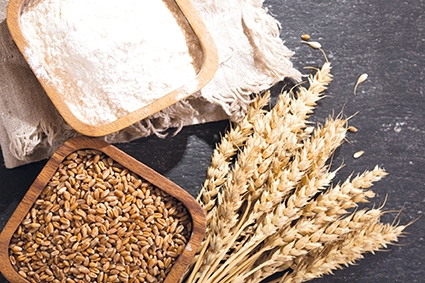On Georgia’s Dependence on Wheat Import from Russia
In January-May 2019, 171 tons of wheat and meslin, a mixture of rye and wheat, was imported into Georgia.
Based on the official statistics of the Georgia’s National Statistics Office, out of total 171,000 tons of wheat, 117,000 were imported from Russia and 54,000 tons from Kazakhstan. So far this year, Georgia has not imported wheat from any other country.
The data of the first five months of the year read that out of 117,000 tons of wheat and mesin imported from Russia, 44,422.3 tons were imported by sea, 46,772.7 tons by motor transport and 25,875.3 tons by rail.
To note, in 2018, 575 thousand tons of wheat and meslin were imported to Georgia: 482,000 tons from Russia, 88,865 tons from Kazakhstan and only a small part from Ukraine and Turkey.
Since 2014, the largest share of wheat import in Georgia comes from Russia. Some economic experts believe that after the travel ban with Georgia imposed by Russian President Vladimir Putin on June 21, and tightening of the Georgian wine export to Russia, wheat export to Georgia might also face a threat.
Ketevan Kublashvili, Director General of Agricom Company, which is the main wheat importer in Georgia, says that today there is a real risk that Russia will also place an embargo on imports of wheat, not only on imports by truck, but by railway and sea too.
“However, this will not be done openly. They [Russia] will just make export procedures harder and create problems when issuing documents. This will be very bad as the citizens of Georgia will be affected if it happens,” she said.
Kublashvili says the risks are real, as Russia knows Georgia is nearly 100% dependent on its wheat.
“Especially during the last 3-4 years, we have become completely dependent on Russian wheat. Practically 60% of imported wheat from Russia comes via truck through the Zemo Larsi checkpoint,” she specified.
Levan Silagava, Head of the Association of Wheat Groups, also spoke about the danger of Russia closing the wheat market.
Silagava believes that the main leverage Russia could employ is complicating the procedures for document procurement when exporting wheat.
“Where these documents are usually prepared in a day and a half, for some countries they will tighten the procedures and postpone this to several days, which is too long. We talked to our business partners in Russia and they say this possibility is a hot topic there. So there exist real risks,” he said.
Below are the top 10 wheat exporter countries in 2019:
1. Russia: US$8.4 billion (21.1% of total wheat exports)
2. Canada: $5.7 billion (14.2%)
3. United States: $5.4 billion (13.6%)
4. France: $4.1 billion (10.3%)
5. Australia: $3.1 billion (7.7%)
6. Argentina: $2.5 billion (6.2%)
7. Ukraine: $2.4 billion (5.9%)
8. Romania: $1.2 billion (3.1%)
9. Germany: $1.2 billion (2.9%)
10. Kazakhstan: $965.4 million (2.4%)
Relations between Russia and Georgia have become tense again following the large-scale anti-Russian rallies launched in Tbilisi, and later in the regions, on June 20. The protests were sparked following the arrival of a delegation of Russian MPs in the Tbilisi parliament building to attend the Inter-parliamentary Assembly on Orthodoxy (IAO). When the president of the Russian delegation used the Parliament Speaker’s chair to address the audience, opposition MPs and protesters forced the IAO session to be relocated to Radisson Blu Hotel, after which a decision taken to wrap up the session and for the Russian delegation to leave the country. That evening riots, during which protestors tried to force their way into the parliament building, 240 people were injured and more than 300 were detained.
The next day, Vladimir Putin issued a decree banning flights to Georgia and a day after that the Russian Federal Service for Surveillance on Consumer Rights Protection and Human Wellbeing released a negative statement against Georgian wine, saying the quality of wine and other alcoholic beverages imported from Georgia “is deteriorating by the year,” forcing them to “tighten control on Georgian products.” Eight specific Georgian wine companies were mentioned as “not meeting the mandatory requirements.”
By Thea Morrison
Image source: Word Grain











